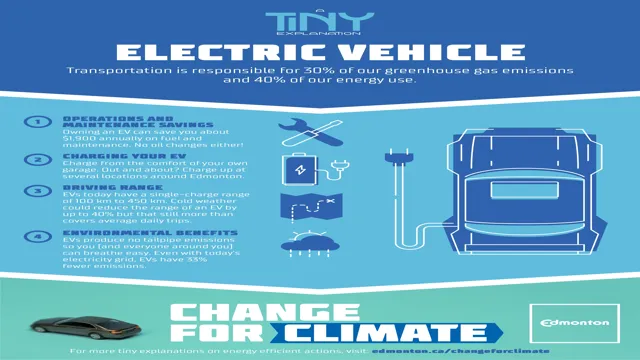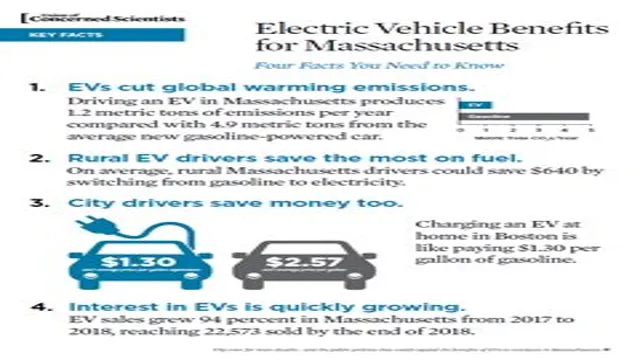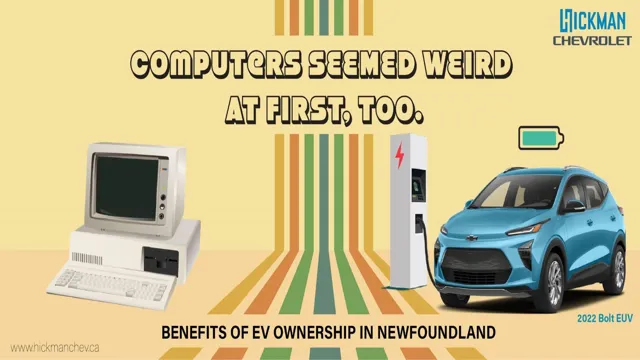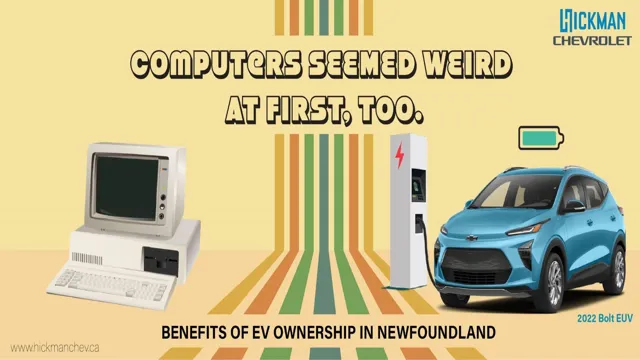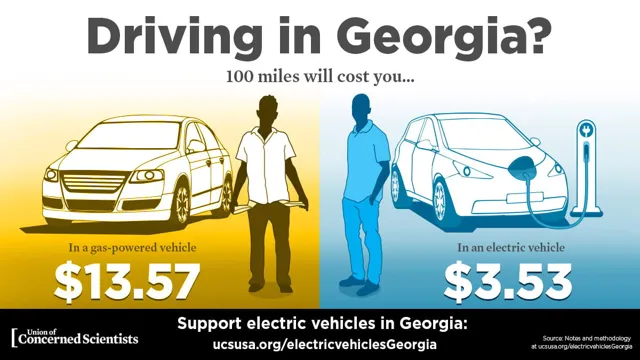Fueling the Future: The Powerful Advantages of Electric Cars over Gasoline
Electric cars have been gaining popularity over the years, and for good reason. With concerns over climate change and the need for sustainable transportation options, electric cars have become an attractive alternative to their gasoline counterparts. Not only are they eco-friendly, but they also offer several benefits that make them a worthwhile investment for any driver.
One of the most significant benefits of electric cars is their efficiency. Unlike gasoline cars, which burn fuel and emit harmful pollutants into the atmosphere, electric cars use an electric motor to convert energy stored in batteries into mechanical energy to power the wheels. This means that not only are they better for the environment, but they also require less maintenance and have a longer lifespan.
Another advantage of electric cars is their lower running costs. Since they don’t require gasoline, electric cars are cheaper to operate and maintain. Charging an electric car is also more convenient than making regular trips to the gas station.
You can charge your electric car at home overnight, and some public charging stations are free to use. Electric cars also offer a more comfortable and smoother driving experience. They are quieter and produce less vibration than their gasoline counterparts, making for a more peaceful journey.
Additionally, electric cars have instant torque, meaning they can accelerate faster than gasoline cars. In conclusion, electric cars are a worthy investment for anyone looking to reduce their carbon footprint, save money, and enjoy a more comfortable driving experience. With the ever-increasing availability of charging infrastructure and advancements in battery technology, there has never been a better time to switch to an electric car.
Cost Savings
When it comes to owning an electric car versus a gasoline car, one of the key benefits is the cost savings. While the upfront cost of an electric car may be higher, the long-term savings can really add up. Firstly, you’ll save money on fuel costs, as electricity is typically much cheaper than gasoline.
Additionally, electric cars require less maintenance, which means fewer trips to the mechanic and lower repair bills. You also may be eligible for tax credits or other incentives for owning an electric car, further reducing the cost. It’s also worth considering that as more people switch to electric cars, the cost of batteries and technology will likely decrease, making these vehicles even more affordable in the future.
Ultimately, opting for an electric car can be a great financial decision over the long-term, and it also has the added bonus of being better for the environment.
Lower Fuel Costs
Lower Fuel Costs One of the most significant benefits of choosing a fuel-efficient vehicle is the cost savings you can enjoy. As gasoline prices continue to rise, fuel consumption is one of the most considerable expenses for many drivers. A fuel-efficient car can save you bunches of money over time and provide ongoing cost savings.
Higher fuel efficiency means that you save money on gas, as you need to fill up less frequently. Moreover, a car that gets excellent gas mileage helps reduce your carbon footprint and minimize environmental damage by producing fewer pollutants. Purchasing a fuel-efficient vehicle also opens the door to various incentives, such as discounts, savings, and rebates.
Additionally, an alternative fuel car can save you money by reducing your maintenance expenses since they have fewer moving parts, resulting in less wear and tear and fewer breakdowns. Ultimately, changing to a fuel-efficient car can be an excellent investment for you and your family, providing you with immediate and long-term rewards, both economically and ecologically.
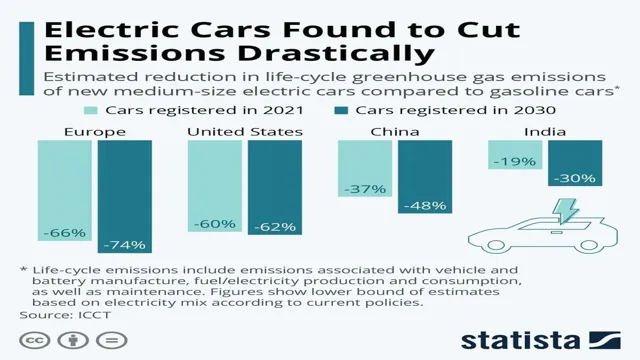
Less Maintenance Required
When it comes to maintaining your property, it’s no secret that upkeep can be a major expense. However, by using low-maintenance materials and techniques, you can save quite a bit of money in the long run. This is especially true for buildings with large surface areas, such as roofs or walls, which can become quickly damaged by weather and wear.
By investing in durable materials such as metal or composite cladding, or opting for coatings and sealants that protect surfaces from damage, you can reduce the need for routine maintenance and extend the lifespan of your property. Not only does this save you time and money, but it also reduces the need for harsh chemicals and other expensive solutions necessary for repairing damaged areas. Overall, investing in low-maintenance solutions for your property can realistically lead to cost savings for years to come.
Environmental Benefits
When it comes to the environment, electric cars have significant benefits over gasoline vehicles. For starters, electric cars produce no emissions during operation, meaning they do not contribute to air pollution, which is a major source of environmental degradation. Moreover, electric cars are highly energy-efficient, with the ability to convert up to 60% of energy stored in their batteries to propel the vehicle, compared to gasoline cars that lose a considerable amount of energy through heat and friction.
Additionally, electric cars produce less noise pollution, which can have a significant impact on the environment in urban areas. In short, electric cars are a great choice for those who want to reduce their carbon footprint and protect the environment. With the advancements in technology and a growing infrastructure of charging stations, electric vehicles are becoming more affordable and accessible, making them a practical option for environmentally-conscious drivers.
Lower Emissions
Lowering emissions brings numerous environmental benefits. With less harmful gases released into the air, the quality of air and overall health of the planet vastly improves. Trees and other plants can grow better, assisting in carbon dioxide absorption.
Reduction in harmful gases such as carbon monoxide and carbon dioxide can improve air, water and soil quality. Clean water and soil are essential for human survival as is the absence of exposure to toxic chemicals like mercury, lead, and arsenic. Moreover, the reduction of greenhouse gas emissions results in slowing down the consequences of climate change such as sea-level rise, global warming and habitat loss for wildlife.
Reducing emissions can also help decrease the prevalence of respiratory problems, allergies, and cardiovascular disease. Lowering emissions may be challenging initially, but with a concerted effort from every individual, corporation and government, cleaner air, water and soil will be a more attainable goal, and we can enjoy a healthier and more sustainable future.
Renewable Energy Sources
Renewable Energy Sources When it comes to renewable energy sources, there are many environmental benefits to consider. For starters, renewable energy sources like wind and solar power produce no greenhouse gas emissions, which is a major contributor to climate change. This means that the use of these sources helps to reduce the amount of carbon in our atmosphere.
Additionally, renewable energy sources are abundant and readily available, making them a sustainable alternative to fossil fuels. This not only helps to reduce our dependence on foreign oil but also helps to create a more stable and diverse energy market. Finally, the use of renewable energy sources can help to reduce our reliance on non-renewable resources, like coal and oil, which are finite in their supply.
By embracing renewable energy sources, we can create a cleaner and more sustainable future for generations to come.
Less Dependence on Fossil Fuels
One of the most significant benefits of reducing our dependence on fossil fuels is the positive impact on the environment. Burning fossil fuels releases harmful pollutants into the air, contributing to climate change, respiratory problems, and other health issues. By transitioning to cleaner energy sources such as wind, solar, and hydro power, we can help reduce greenhouse gas emissions and improve air quality, preserving the planet for future generations.
Not only that, but renewable energy sources are also limitless, unlike fossil fuels that have a finite supply. It’s like switching from disposable batteries to rechargeable ones. We reduce waste and save money in the long run.
It’s a no-brainer! So, why not join the movement towards clean energy and do our part in creating a more sustainable world?
Convenience and Efficiency
When it comes to the benefits of electric cars over gasoline, convenience and efficiency are two of the most notable advantages. One of the biggest conveniences of electric cars is that you can charge them at home overnight while you sleep, eliminating the need to make regular stops at gas stations. Additionally, electric cars require less maintenance than gasoline cars, as they have fewer moving parts and don’t require oil changes.
This means less time and money spent on routine upkeep. In terms of efficiency, electric cars are much more energy-efficient than gasoline cars, which means you’ll get more mileage out of each charge. Not only does this save you money in the long run, but it also reduces your carbon footprint, making electric cars a more environmentally-friendly choice.
All in all, the convenience and efficiency of electric cars make them an appealing option for those looking to make the switch from gasoline vehicles.
Less Time Spent Refueling
Picture this: you’re on a long road trip, and you’ve been driving for hours. You’re close to your destination, but you need to stop and refuel. It’s not just the cost of gas that’s frustrating- it’s also the time it takes to fill up your tank and pay for everything at the pump.
But imagine being able to spend less time refueling and more time enjoying your trip. That’s where electric vehicles come in. With EVs, you can charge your vehicle at home or at a public charging station, which takes only seconds to plug in and start charging.
Plus, some EVs have longer ranges, meaning you won’t have to stop and refuel as often. Not only is this convenient for your trip, but it also saves you time in your daily life. No more stopping at gas stations on the way to work or running errands.
With EVs, you can spend less time refueling and more time doing what you love.
Regenerative Braking Technology
Regenerative braking technology is a system that helps to increase the efficiency of electric vehicles and hybrid cars while also providing a more convenient driving experience. This innovative technology captures the energy that is lost during braking and stores it in a battery system for later use. This means that when a driver applies the brakes, the vehicle’s kinetic energy is converted into electrical energy, which can be used to power the vehicle’s electrical systems or to assist the engine during acceleration.
This not only reduces the amount of energy required from the battery but also helps to extend the overall range of the vehicle. In addition, regenerative braking technology can make driving more convenient by reducing the need to use the physical brakes as often, helping to reduce wear and tear and providing a smoother driving experience. Overall, regenerative braking technology is a significant advancement in the world of electric and hybrid vehicles, providing both convenience and efficiency.
Government Incentives and Subsidies
One of the biggest benefits of electric cars over gasoline is the potential cost savings through government incentives and subsidies. Many countries around the world offer tax credits, rebates, or other incentives to consumers who purchase electric cars. For example, in the US, the federal government offers a tax credit of up to $7,500 for the purchase of a qualifying electric vehicle.
Additionally, some states offer additional incentives, such as electric vehicle rebate programs or access to carpool lanes. These incentives can significantly reduce the cost of owning an electric car and make them more accessible to a wider range of consumers. Moreover, governments may also provide subsidies to develop infrastructure for electric vehicles, such as public charging stations, which also help increase the convenience of owning an electric car.
Overall, these incentives and subsidies can make electric cars a more economically attractive option compared to gasoline-powered vehicles.
Conclusion
In conclusion, the benefits of electric cars over gasoline are undeniable. Not only are they better for the environment and a step towards a more sustainable future, but they are also more efficient and offer a smoother and quieter ride. Plus, let’s not forget the added bonus of never having to stop at a gas station or deal with those pesky fumes.
So, if you want to save both the planet and your wallet, it’s time to plug into the electric revolution.”
FAQs
How do electric cars benefit the environment compared to gasoline cars?
Electric cars produce zero emissions while driving, reducing air pollution and greenhouse gas emissions. In contrast, gasoline cars emit harmful pollutants and contribute to climate change.
Are electric cars cheaper to operate than gasoline cars?
Yes, electric cars are generally cheaper to operate than gasoline cars. They have lower fuel costs, require less maintenance, and may qualify for tax incentives or rebates.
What is the driving range of an average electric car compared to a gasoline car?
The driving range of an electric car depends on various factors such as battery capacity, driving style, and weather conditions. However, most electric cars can go 100-300 miles per charge, while gasoline cars typically have a range of 300-400 miles per tank.
Can electric cars be charged at home?
Yes, electric cars can be charged at home using a standard electrical outlet or a dedicated charging station. This provides convenience and saves time compared to refueling at a gas station.
